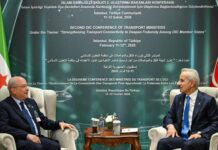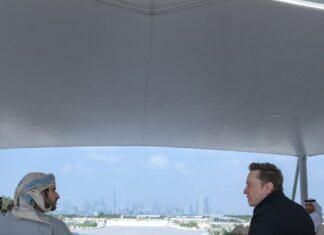
As the conflict between Israel and its neighbors intensifies, Turkey is navigating a complex web of regional dynamics, balancing its security concerns, regional aspirations, and diplomatic relationships. Amid increased Israeli aggression in Palestine and Lebanon, Turkey is repositioning itself as a key player in the Middle East, particularly in relation to Syria, where it has long-standing tensions with the Assad regime.
Sources close to the Turkish military informed L24 that troops are preparing for a “limited ground operation in North Western Syria.” General Selcuk Bayraktar Oglu, Commander of the Turkish Land Forces, recently led a delegation to inspect military sites in Afrin and the Idlib countryside, indicating Ankara’s readiness to confront potential threats emerging from its southern border.
Heightened security is evidence of ongoing concerns about the possible effects of Israeli escalation in Lebanon and Syria. Turkish Defense Ministry advisor Zeki Akturk emphasized that these measures protect Turkish borders as regional instability threatens to affect Turkey’s domestic security.
As the IDF continues attacks against Hezbollah in Lebanon and Syria, Ankara sees an opportunity to expand its influence in areas traditionally dominated by Iran. Analysts suggest that the assassination of Hassan Nasrallah could weaken Iran’s proxy forces, creating an opening for Turkey to increase its presence in Syria, Iraq, and Lebanon. Ankara’s muted response to Nasrallah’s death – while critical of Israeli aggression in Lebanon – indicates its desire to avoid alienating Tehran while still positioning itself for a more dominant role.
Dr. Samir Salha, a law and international relations professor, noted that Turkey’s current foreign policy differs from the more conciliatory approach it adopted two years ago. “The region’s escalating violence contradicts Ankara’s strategy of resolving disputes with neighboring countries,” Salha said. However, Turkey’s cautious stance may change if regional confrontations further destabilize Syria or Iraq, where Ankara has vested interests in controlling Kurdish groups and maintaining influence in post-conflict reconstruction.
Relations between Erdogan and the Assad regime remain tense. Despite months of pursuing normalization with Damascus, progress has been slow. With regime officials refusing to alter demands for Turkey to withdraw from the country and cease support for “opposition forces.”
The potential for a face-to-face meeting between Erdogan and Assad remains uncertain. Despite diplomatic overtures, Assad’s ambassador to Russia, Bashar al-Jaafari, recently dismissed the possibility of such a meeting at the upcoming BRICS summit. “Dialogue must come from both sides,” al-Jaafari said.
Meanwhile, Erdogan faces pressure to secure Turkey’s borders, particularly given the presence of millions of Syrian refugees and an economic recession. Public sentiment in Turkey remains mixed, with nationalist factions demanding expelling refugees, some pushing for stronger military actions against the PKK-aligned SDF, while others call for restraint in addressing the Syrian file and refugee crisis.
While Turkey has avoided direct military engagement in Lebanon and Gaza, its regional ambitions are clear. Ankara has long supported a two-state solution for the Palestinian-Israeli conflict, and recent escalations have allowed it to push for a more prominent role in the region’s diplomacy. However, Turkey’s diplomatic maneuvering is not without risks. Its actions could provoke reactions from both regional and global powers, including key Israeli allies the US and Russia, which have been wary of Turkey’s growing influence in the Middle East.
Turkey’s foreign policy is increasingly driven by its desire to be seen as “a stabilizing force” while simultaneously asserting its strategic interests. In the face of Israeli aggression, Ankara remains critical of Tel Aviv’s actions but refrains from aligning itself with Hezbollah and Iran. As Turkey continues to pursue its interests in Syria, Iraq, and Lebanon, it must balance domestic pressures with the realities of regional geopolitics, aiming to expand its influence without igniting a broader conflict.








